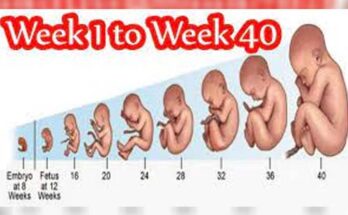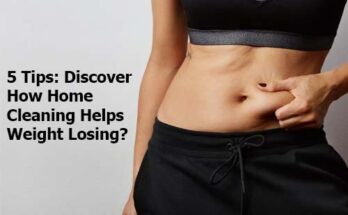Once again, finding a lot of fallen hairs on the comb, the girls begin to grab everything in a row to stop this process. Masks for the scalp, special shampoos, herbal decoctions, mesotherapy, and more are used. But the use of external agents does not always lead to the desired result. In fact, the cause must be sought within the body.
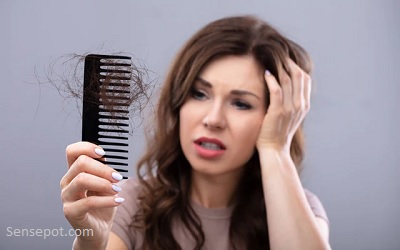
The Life Cycle of Hair
To begin with, hair loss is a natural process. Each hair grows from a hair follicle, which has its own life cycle:
- Anagen is the stage of active follicle growth. During this period, cell division occurs, due to which the curls begin to grow faster. The anagen phase lasts an average of 2 to 7 years. Hair grows one centimeter every month. After active growth, the follicles enter the next step;
- Catagen is the second stage. During this period, the hair follicle is formed and hair growth gradually stops. The body, as it were, “turns off” the formed hairs from nutrition, and the follicle itself goes into the deeper layers of the skin. The duration of this phase is 2-3 weeks;
- Telogen is the final stage, which lasts approximately 3 months. The hair follicle is the end product of the follicle. At the end of the telogen phase, dead and completely keratinized hair begins to fall out. After that, it starts all over again.
However, some factors can make adjustments to this process, causing you to notice even more hair loss. But do not panic, now we will analyze everything and put it on the shelves.
Causes of Hair Loss
Consider the most common factors that can lead to severe hair loss:
- Hormonal changes ;
- Pregnancy ;
- Recovery after childbirth;
- Stress ;
- Autoimmune diseases;
- Taking certain medications;
- Malnutrition;
- Beriberi.
If you look at the statistics, you can see that the main cause of hair growth is nutritional deficiency. Sometimes it is very difficult to restore the lack of trace elements in the body with the help of nutrition. Therefore, it will be very difficult to do without vitamins. Next, we will tell you what dietary supplements are best included in the diet in order to improve the condition of your curls.
The Best Vitamins for Hair Growth
Vitamin A
Our cells need this vitamin and hair is no exception. This microelement supports the work of the sebaceous glands, which moisturize the scalp and help keep the curls healthy. But with the intake of vitamin A, one must be extremely careful. Lack and excess of nutrients can lead to hair loss, and in some cases to more serious disorders. Yes, yes, you got it right. The golden mean is important here.
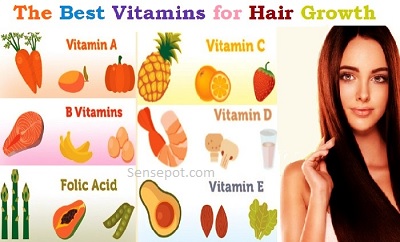
Doctors recommend that you first take an analysis to understand if you have a deficiency and only then resort to the help of dietary supplements.
The best prevention of beriberi will be foods rich in vitamin A.
B vitamins
The most valuable vitamins for your hair are:
- B2 (riboflavin) – plays a role in the creation of new cells in the body. Since many hair follicles are in the stage of active growth, they are in dire need of support in the form of nutrients. And riboflavin will handle it very well;
- B3 (niacin) – improves blood circulation and transport of nutrients to the follicles, and also reduces the severity of inflammatory processes on the scalp.
- B5 (pantothenic acid) is one of the most important vitamins for hair. Strengthens and nourishes hair, promotes healthy growth, and prevents hair loss.
- B6 – this nutrient is involved in protein metabolism, which allows you to deliver the “building blocks” in the form of amino acids directly to the hair cells. Also, some studies have shown that vitamin B6 can regulate hair growth and fight thinning hair by influencing hormone activity.
- B7 (biotin or vitamin H) is a vitamin around which there is a lot of controversy. On the one hand, everyone is talking about its benefits for hair and nails. But in fact, biotin only works in cases of severe deficiency. If you have a sufficient level of vitamin B7 in your body, an additional intake of dietary supplements will not give the desired result. As a rule, biotin deficiency is a rare occurrence, because most of it enters the body with food.
- B9 (folic acid) – supports hair growth, prevents hair loss, and regulates the activity of the sebaceous glands.
- B12 – This fat-soluble vitamin plays an important role in metabolism, in addition, it contributes to the formation of red blood cells and regulates the functioning of the nervous system. Red blood cells serve to carry oxygen throughout the body and to hair follicles. Without enough oxygen, curls grow more slowly and lose their luster.
Vitamin C
Well, who doesn’t love ascorbic acid? It is not only tasty but also useful. Ascorbic acid is very important for your hair. To begin with, vitamin C is a powerful antioxidant that protects the body from oxidative stress. It is also important for the synthesis of collagen fibers and the absorption of iron. Therefore, people who are struggling with alopecia must make sure that their diet contains foods rich in vitamin C or supplements with it in the composition.
Studies have shown that hair loss is often associated with iron deficiency and, as a result, with a low intake of ascorbic acid.
Vitamin D
Vitamin D is important for bone health and the immune system, but few people knew that alopecia can be associated with a deficiency. Our body is able to independently produce this nutrient, but this amount is very small to cover the need for it. Vitamin D stimulates hair growth and takes part in the creation of hair follicles, which is why it is so important to ensure that it is enough in the body.
Vitamin E
This is another antioxidant that, along with vitamin C, fights oxidative stress. Vitamin E is very important for the health of the skin, including the scalp. It helps to improve the condition of the hair, gives it a natural shine, prevents hair loss, improves blood circulation, nourishes the follicles, and creates a protective barrier on the skin surface.
Other Nutrients for Healthy Hair
Zinc
Zinc is far from the last place in the list of important trace elements for hair growth and restoration. It regulates the work of the sebaceous glands, favorably affects the hormonal background, takes part in the formation of new cells, and is also necessary for the absorption of nutrients. Zinc deficiency leads to hair loss, but it is important to note that an excess of zinc can also lead to alopecia. Therefore, in no case should you take this mineral in large quantities.
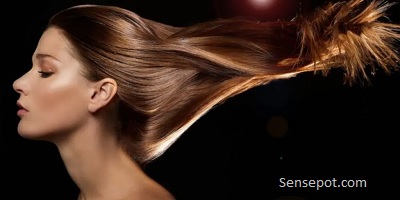
Selenium
Selenium is a trace element that the body needs to produce 35 proteins. It is also needed for healthy hair and its active growth. The main benefits of selenium include:
- Fight against the fungus that causes dandruff;
- Regulation of the thyroid hormones, which in turn stimulate the growth of your curls;
- Protection against free radicals that affect the activity of hair follicles.
It is important to understand that the deficiency and excess of the trace element lead to hair loss. Do not abuse selenium-based nutritional supplements, take them strictly according to the instructions and after visiting a doctor.
Iron
Our TOP is completed by such a microelement as iron. With sufficient amounts, red blood cells carry oxygen to the cells, supporting the functioning of the body and the health of the hair. It is known that iron deficiency is the cause of anemia, in which alopecia is observed. Especially often this can be observed in the representatives of the fair half. Therefore, it is extremely important for women to monitor the level of iron in the body and prevent its decrease in the blood to critical levels.
Which is better: supplements or natural products
This is an eternal question around which there is so much controversy. Of course, the best way to replenish your body with the necessary amount of vitamins is a balanced diet. No supplements can replace a complete diet for you. However, it should be understood that the absorption of certain nutrients may decrease. This may be due to diseases or refusal of certain foods. In addition, deficiency can occur in people over 50 years of age, as well as in pregnant and lactating women. Therefore, in such cases, it is rational to resort to the help of vitamin-mineral complexes, but only after consulting a doctor. After all, your task is to take care of health and beauty, and not vice versa.
You can also get Get Glowing Skin: 5 Easy Ways to Steam Your Face at Home
It is important to take dietary supplements in compliance with all recommendations, not to exceed the daily dosage, and drink everything in a course.
FAQs
Can vitamins alone cure hair loss?
- Vitamins can help improve the health of your hair and prevent further hair loss, but they may not be enough to cure hair loss completely. It’s best to consult a healthcare professional to determine the underlying cause of your hair loss and develop a treatment plan.
How long does it take for vitamins to work on hair loss?
- It can take several months to see the effects of vitamins on hair loss. Consistency is key, and it’s important to take the recommended daily dosage for an extended period of time to see results.
Are there any side effects of taking vitamins for hair loss?
- Taking too much of certain vitamins can lead to side effects such as nausea, headaches, and hair loss. It’s important to follow the recommended daily intake and consult a healthcare professional before starting any new supplements.
Can I get all the necessary vitamins for hair growth from my diet?
- A healthy diet that includes a variety of fruits, vegetables, whole grains, lean proteins, and healthy fats can provide most of the vitamins and nutrients needed for healthy hair growth. However, supplements may be necessary for individuals who have a nutrient deficiency or who are unable to get enough from their diet.
Can hair loss be caused by stress?
- Yes, stress can contribute to hair loss by disrupting the hair growth cycle and causing hair to enter the resting phase prematurely. Reducing stress through exercise, meditation, or therapy can help improve hair health.
We hope this article was useful to you

